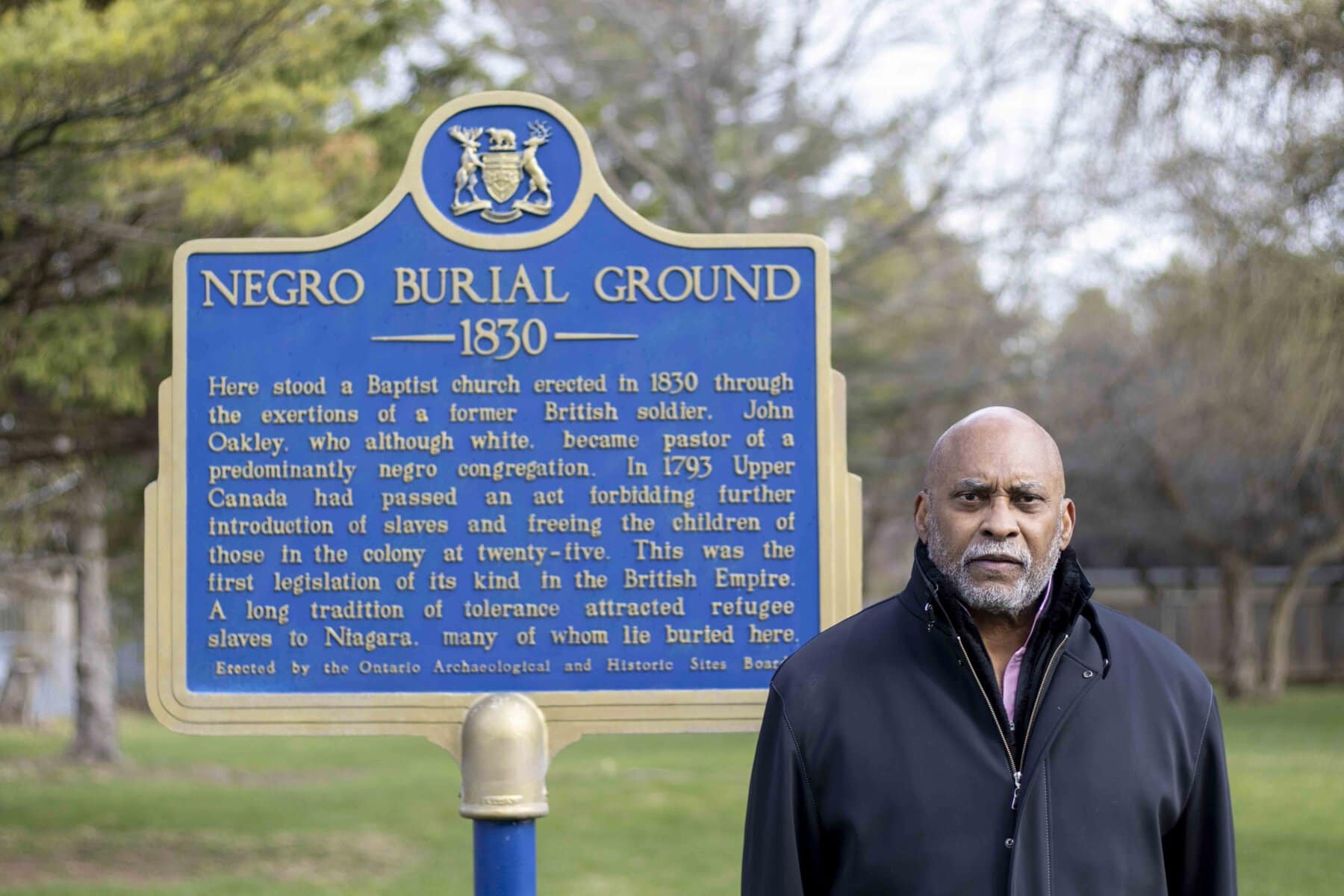A report detailing archeological research at a historically Black cemetery in Niagara-on-the-Lake is being kept under wraps until it’s presented to council, likely later this month.
The first stage of an archeological assessment was completed at the Niagara Baptist Church Burial Ground earlier this year, but George Webber, chair of the Friends of the Forgotten committee, says it’s confidential until council reviews it.
The report is part of ongoing work to determine who is buried at the cemetery site, which bears only two headstones despite the possibility of up to 28 Canadian settlers being buried there.
“We’ve been waiting for this in order to give us some direction as to how we should proceed,” Webber said of the report.
The Friends of the Forgotten is a citizen-run committee focused on honouring and memorializing not only the men and women buried at the Niagara Baptist Church Burial Ground, but also at other Black cemeteries across Niagara-on-the-Lake.
The group funded the stage one assessment, which Archaeological Research Associates Ltd. conducted and the Town of Niagara-on-the-Lake commissioned.
The report includes information about the area’s geography and history, the site’s archeological potential and strategies to proceed to the second stage, according to a press release from the Friends of the Forgotten.
It’s not confirmed when the stage one report will go to council, but Cluckie said staff are aiming for the meeting on June 27.
“We are excited that we’ve hit this stage and that we have that comprehensive document because it really does allow us to move forward,” she said.
During stage two, an archeologist will survey the land and look for archeological resources. The archeologist will rake over the surface in search of artifacts or anything of significance.
“We have to bring it to council to determine whether or not that’s what they would like to do, but that would be the next stage if we’re going to continue,” said Marnie Cluckie, the town’s chief administrative officer.
“Pending budget availability, town staff would be supportive of moving forward in that way,” she added.
A stage two assessment would cost anywhere between $50,000 to $60,000, Cluckie told The Lake Report.
It’s the first step required by the Bereavement Authority of Ontario before any work can be done on the site.
“Some options for revitalizing the site include creating a memorial, confirming the interments, mapping and possibly recovering any potential headstones,” reads the press release.
Webber told The Lake Report the majority of the committee is in favour of exposing and restoring the headstones, especially after seeing it done at Victoria Lawn Cemetery in St. Catharines recently.
However, Webber has some concerns about unearthing the headstones especially when it comes to costs.
Headstones could be deteriorated and as a result unusable, which would require the committee to decide if they want to fix the headstones or make new ones.
“Every time you expose one, you have these issues to deal with, and every time you have these issues, you run into costs,” said Webber.
“As a result of that, I have always been of the opinion that let’s go with a memorial,” he added.
He likes the idea of a memorial because a memorial recognizes a whole community that lived there, rather than just one individual.
What happens next all depends on if they get the go-ahead for a stage two assessment, he said.
Cluckie said unearthing the headstones would require going through all of the archeological stages.
She added that as part of stage two, they’d probably have the archeologist create a conservation plan. This would help guide the town and the committee when it comes to digging up the stones.
According to the release, the committee has been reaching out to other jurisdictions, like St. Catharines, to learn more about their experiences with restoration efforts at historic burial sites.










